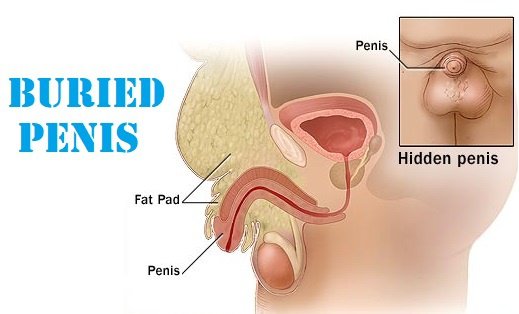Weight Loss and Penis Size - Is There a Connection?
Many men have wondered whether losing weight could lead to a bigger penis. While it's natural to seek improvements in various aspects of our lives, including our bodies, it's essential to separate fact from fiction when it comes to body proportions and weight loss. Here, we examine whether losing weight truly impacts penis size.

Understanding Penis Size
Before delving into the relationship between weight loss and penis size, it's crucial to understand the variability in penis sizes among individuals. Penis size is primarily determined by genetics and hormonal factors during fetal development and puberty. The size of the penis is generally consistent regardless of body weight, with variations observed within a normal range. Keep in mind that "size" might refer to both length and girth.
Weight Loss and Physiological Changes
Losing weight can have positive effects on various aspects of our health, including cardiovascular function, hormonal balance, and enhanced self-esteem. However, there is no direct scientific evidence to support the claim that weight loss causes an increase in penis size. While weight loss may result in fat reduction in the pubic area, making the penis appear slightly larger, it is the illusion of extra length rather than a physiological change.
Weight Loss for Overall Health
Maintaining a healthy weight through proper nutrition and exercise is essential for overall well-being and longevity. If you are overweight or obese, losing weight can have substantial health benefits. Introducing regular exercise and adopting a balanced diet improve cardiovascular health, reduce the risk of chronic diseases, and enhance self-confidence, which can positively impact all aspects of your life, including sexual experiences.
Accepting Your Body and Embracing Confidence
It's vital to understand that penile size does not define masculinity or one's ability to satisfy a partner sexually. Emphasizing the importance of communication, emotional intimacy, and sexual techniques can foster a fulfilling and satisfying sex life, regardless of penis size. Remember, the size of your heart matters far more than the size of your penis!
In conclusion, losing weight may not directly lead to a larger penis size. While weight loss can reduce excess pubic fat, creating an illusion of increased length, it does not result in a physiological change in penile size. Focus on maintaining overall health through proper nutrition, exercise, and fostering emotional intimacy, as these aspects contribute to a satisfying sex life.
Remember, it's essential to embrace and accept your body as it is, acknowledging that true sexual satisfaction goes beyond physical attributes.
Related FAQs about does losing weight make your penis bigger
Q: Does losing weight make your penis bigger?
Ans: Losing weight may create an illusion of a bigger penis due to reduction in pubic fat, but it does not lead to physiologically larger penile size.
Q: Can losing weight affect penis length?
Ans: Weight loss primarily influences overall health, including cardiovascular function. However, it does not result in actual increases in penile length.
Q: Is there a correlation between weight loss and penis size?
Ans: There is no direct scientific correlation between weight loss and penis size. Penis size is determined by genetics and hormonal factors during development.
Q: Will losing weight improve sexual performance?
Ans: Losing weight can have positive effects on overall health, potentially improving cardiovascular function and self-esteem, which can indirectly enhance sexual performance.
Q: What factors contribute to penis size?
Ans: Penis size is primarily determined by genetics and hormonal factors during fetal development and puberty. Weight loss does not alter these predetermined factors.
Glossary about does losing weight make your penis bigger
1. Penis: The penis is the primary sexual organ in males, responsible for sexual reproduction and urination.
2. Genetics: Genetics is the study of genes and heredity, focusing on how traits and characteristics are passed down from parents to offspring.
3. Hormones: Hormones are chemical messengers produced by various glands in the body, regulating important physiological functions and influencing growth, development, and sexual characteristics.
4. Puberty: Puberty is the stage of development when children's bodies mature into adult bodies, characterized by physical and sexual changes, including the enlargement of sexual organs.
5. Cardiovascular function: Cardiovascular function refers to the efficiency and health of the heart and blood vessels in delivering oxygen and nutrients to the body's tissues and organs.
6. Chronic diseases: Chronic diseases are long-lasting medical conditions that tend to progress over time, such as heart disease, diabetes, and obesity.
7. Self-confidence: Self-confidence is a belief in one's own abilities, self-worth, and value, which contributes to a positive self-image and overall well-being.
8. Communication: Communication is the act of conveying information, thoughts, or feelings between individuals through verbal and non-verbal means, fostering understanding and connection.
9. Emotional intimacy: Emotional intimacy refers to the closeness and connection shared between individuals, involving trust, vulnerability, and the ability to openly express and share emotions.
10. Sexual techniques: Sexual techniques refer to the various methods, practices, and approaches used during sexual activity to enhance pleasure and intimacy between partners.
